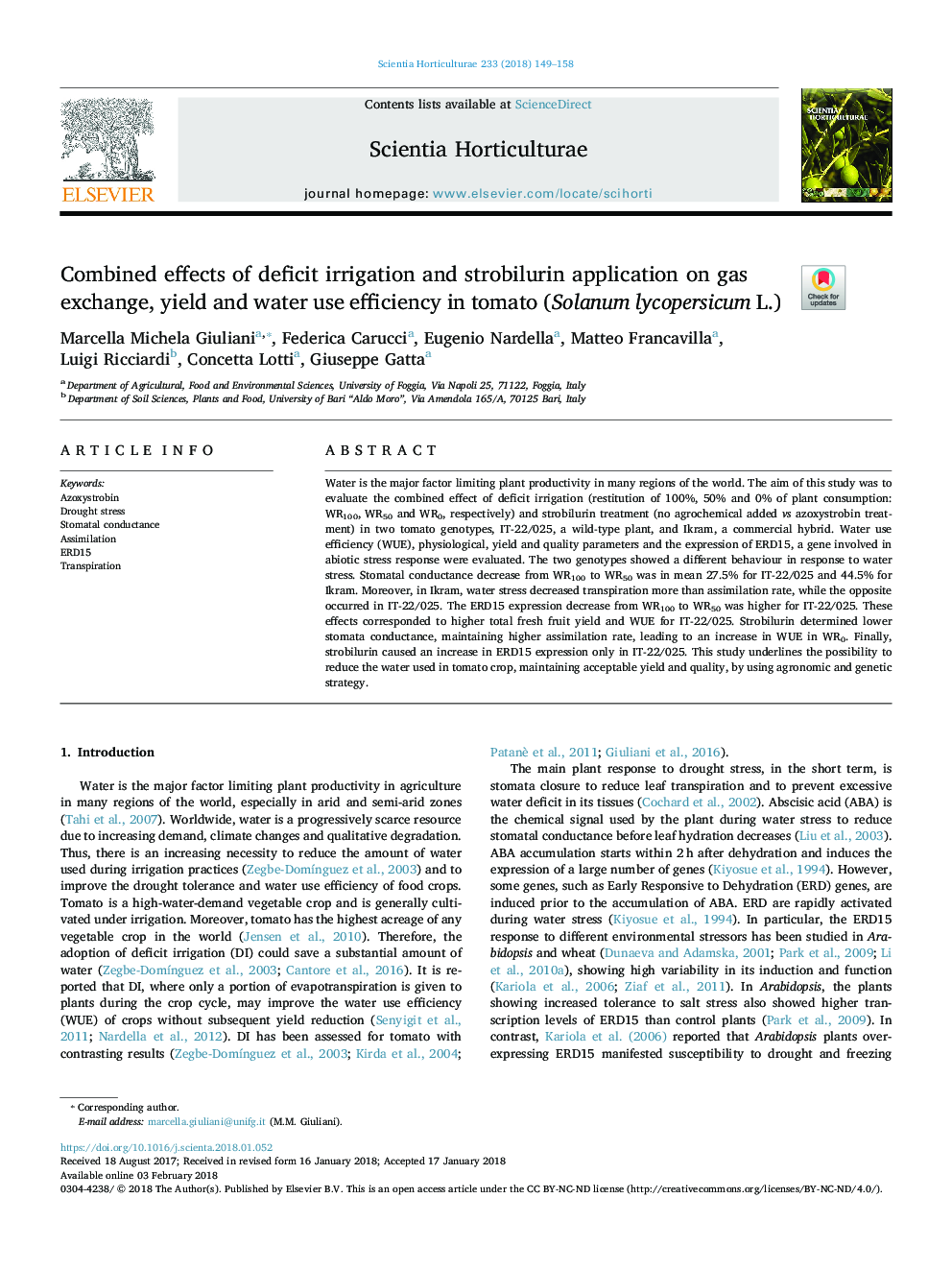| Article ID | Journal | Published Year | Pages | File Type |
|---|---|---|---|---|
| 8892853 | Scientia Horticulturae | 2018 | 10 Pages |
Abstract
Water is the major factor limiting plant productivity in many regions of the world. The aim of this study was to evaluate the combined effect of deficit irrigation (restitution of 100%, 50% and 0% of plant consumption: WR100, WR50 and WR0, respectively) and strobilurin treatment (no agrochemical added vs azoxystrobin treatment) in two tomato genotypes, IT-22/025, a wild-type plant, and Ikram, a commercial hybrid. Water use efficiency (WUE), physiological, yield and quality parameters and the expression of ERD15, a gene involved in abiotic stress response were evaluated. The two genotypes showed a different behaviour in response to water stress. Stomatal conductance decrease from WR100 to WR50 was in mean 27.5% for IT-22/025 and 44.5% for Ikram. Moreover, in Ikram, water stress decreased transpiration more than assimilation rate, while the opposite occurred in IT-22/025. The ERD15 expression decrease from WR100 to WR50 was higher for IT-22/025. These effects corresponded to higher total fresh fruit yield and WUE for IT-22/025. Strobilurin determined lower stomata conductance, maintaining higher assimilation rate, leading to an increase in WUE in WR0. Finally, strobilurin caused an increase in ERD15 expression only in IT-22/025. This study underlines the possibility to reduce the water used in tomato crop, maintaining acceptable yield and quality, by using agronomic and genetic strategy.
Related Topics
Life Sciences
Agricultural and Biological Sciences
Horticulture
Authors
Marcella Michela Giuliani, Federica Carucci, Eugenio Nardella, Matteo Francavilla, Luigi Ricciardi, Concetta Lotti, Giuseppe Gatta,
